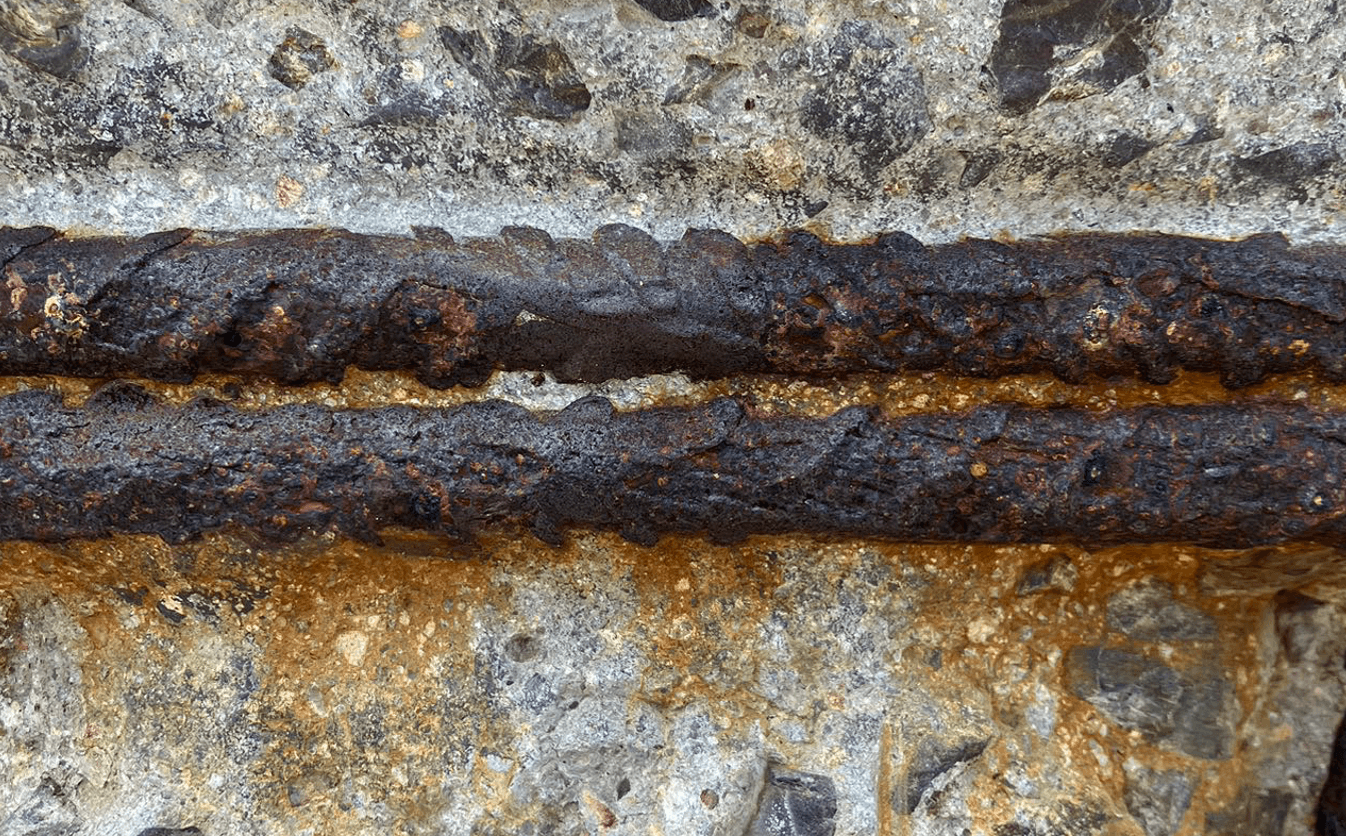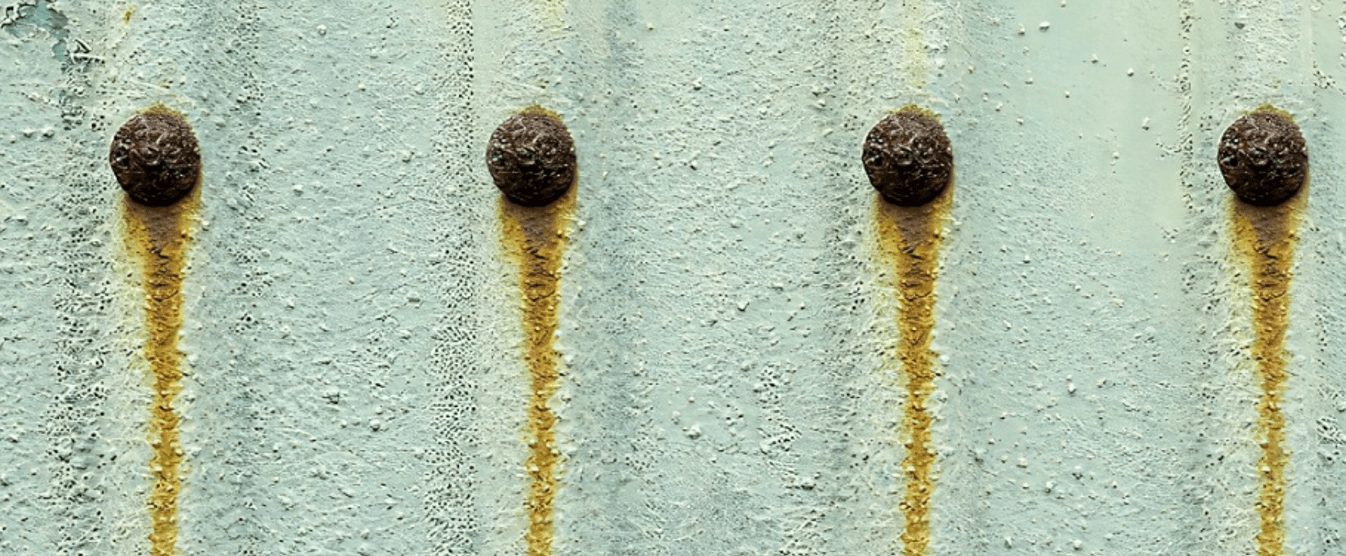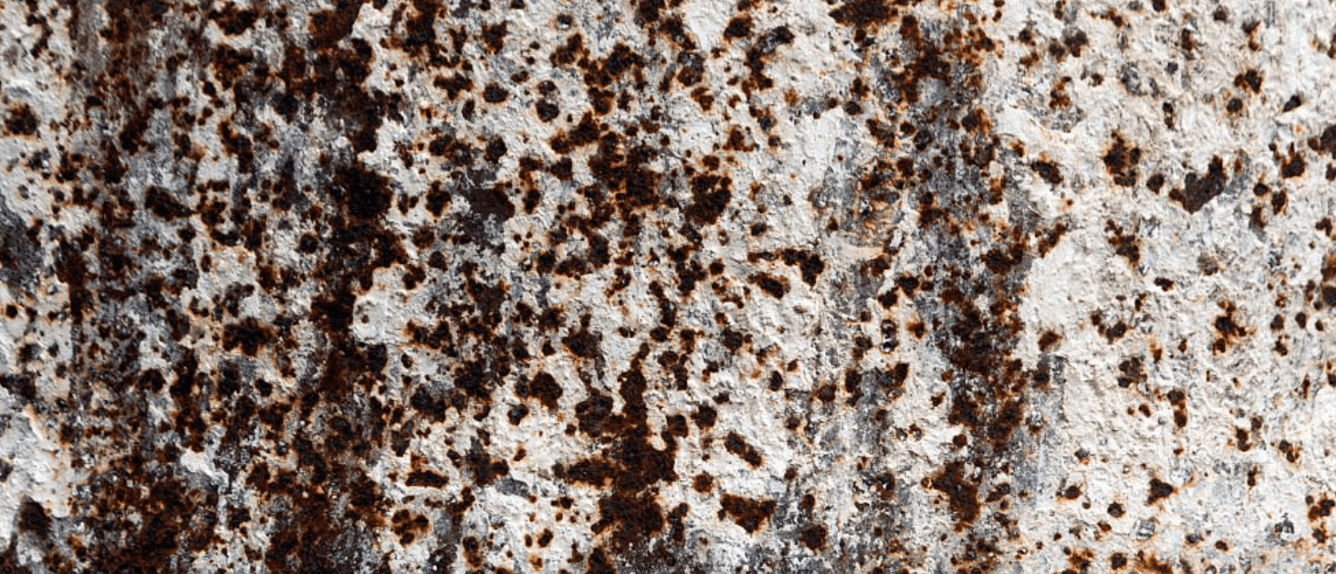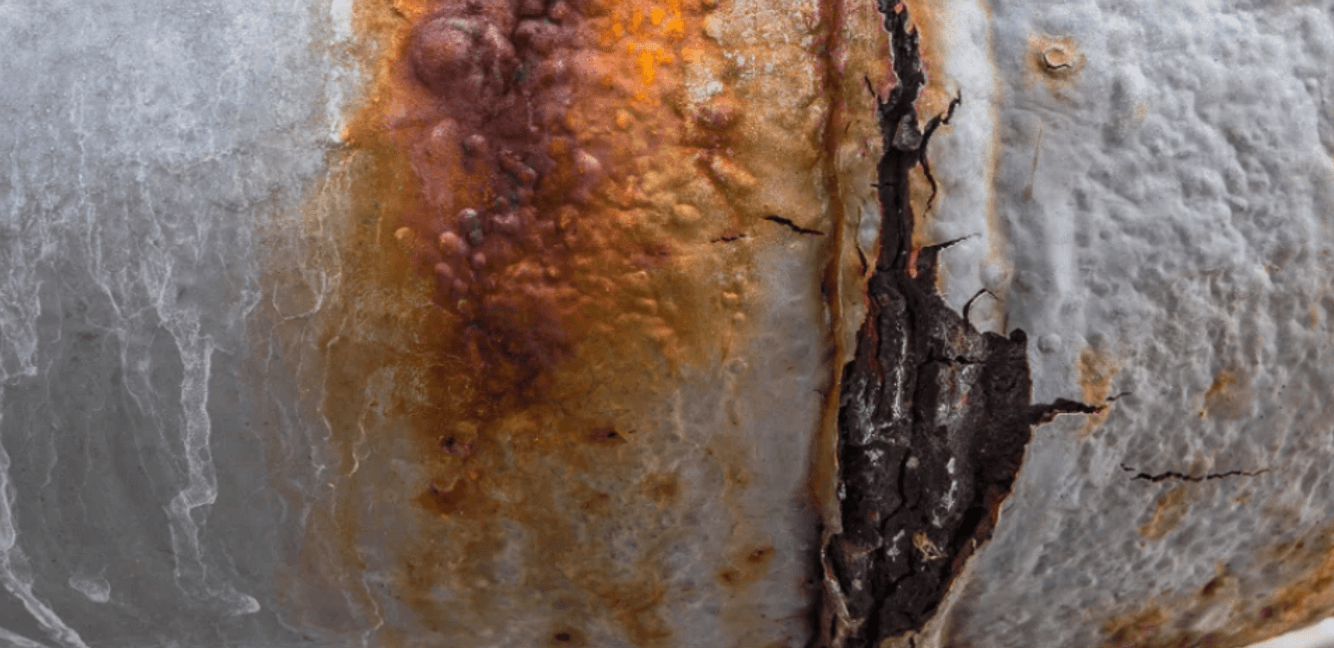Corrosion is a natural process that occurs when metals react with substances in their operating environment, leading to deterioration of the material. Here are some examples of different forms of corrosion:

Reinforcement Corrosion
This corrosion is also known as “concrete cancer” in the civil industries. Reinforced concrete structures are often exposed to moisture, oxygen, chloride ions, and carbon dioxide from the atmosphere. These elements can penetrate the concrete and reach the embedded steel reinforcement leading to corrosion, comprising the integrity of the structure.

Galvanic Corrosion
This occurs when two different metals contact each other in the presence of an electrolyte, such as saltwater, water or soil. The more active metal corrodes preferentially, while the less active metal remains relatively unaffected.

Pitting Corrosion
This type of corrosion causes localised material loss on the metal surface, resulting in pits or craters. Common in metals like stainless steel and aluminium, it’s typically caused by localised chemical reactions or exposure to corrosive environments.

Crevice Corrosion
It is a localized corrosion phenomenon that develops within confined spaces or crevices on a metal's surface under stagnant conditions, inhibiting oxygen diffusion. These spaces encompass gaps, joints, seams, or areas where metal surfaces are in close contact, like under gaskets, washers, bolt heads, or deposits.

Stress Induced Corrosion
This corrosion also known as stress corrosion cracking, involves the formation of cracks in metal due to the combined influence of tensile stress and a corrosive environment. It can affect materials like stainless steel, aluminium alloys, and brass, particularly in environments like marine or chemical processing facilities.
At QSC Engineering, we recognize the paramount importance of combatting corrosion to uphold the durability and safety of your structures and assets. Leveraging our tailored solutions and expertise, we offer a range of investigative techniques to pinpoint the root causes of corrosion:
- Detailed material composite analysis employing cutting-edge microscopy technologies.
- Review of historical operational records of your assets.
- Utilization of non-destructive testing methods such as Ground Penetration Radar (GPR), Potential Mapping, and concrete resistivity testing.
- Conducting chemical profiling analysis.
We are dedicated to providing bespoke services aimed at mitigating corrosion risks and implementing effective management strategies. Our committed team collaborates closely with clients to assess their specific needs, develop comprehensive corrosion mitigation plans, and deliver ongoing support to counteract the adverse effects of corrosion. Place your trust in QSC Engineering as your partner in preserving the integrity and longevity of your assets for years to come.